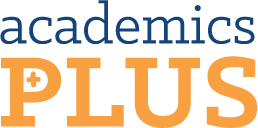You may have heard of dyscalculia as “math dyslexia.” Neuroscientists define dyscalculia as “difficulty in mathematical performance resulting from impairment to those parts of the brain that are involved in mathematical processing, without a concurrent impairment in general mental function.”
Particularly for students with dyscalculia, learning math can feel like trying to master a foreign language. Sadly, left untreated, dyscalculia creates deficits in math that only grow over time. Offering hope, though, early interventions can help students with dyscalculia achieve high-level success in mathematics.
What are the signs my child might have dyscalculia?
Children with dyscalculia often have difficulty with visualization, working memory, retrieval, and processing speed. But the way that these challenges manifest depends on the child.
At home, you may have noticed some of the common signs of dyscalculia:
Confusion with left-right or N-S-E-W directions
Getting lost easily or demonstrating poor sense of direction
Mixing up letters, numbers, and symbols
Losing track while counting or relying on fingers to count
Difficulty reading an analog clock
Losing track of time
Inconsistency with mental math
Inability to organize money
Anxiety during math tasks
Absentmindedness
Difficulty remembering how to keep score in a game
Poor ability to visualize (like remembering geographical locations on a map)
Difficulty with motor sequencing (like remembering the steps in a dance, changing physical directions during sports, or relying on muscle memory)
Poor working memory (holding information temporarily, like remembering a phone number while looking for a piece of paper to write it down)
What strategies can help a student manage, remediate, and overcome dyscalculia?
If you suspect that your child may be suffering from dyscalculia, early intervention is essential. At Academics Plus, we want parents to be informed and empowered to advocate for their children.
Below are some of the specific strategies that we often recommend for learners with dyscalculia:
Being assessed and discussing math learning history with a learning specialist
Participating in a personalized math curriculum
Receiving specialized support to learn to think mathematically
Learning specific strategies like the base-ten system
Using money to learn about place-value and fractions (because money is practical and intuitive)
Using money to learn about exchanges, taxes, tips, and discounts
Playing games that increase visual-spatial awareness, reasoning, and pattern recognition skills
Learning how to read and spell math vocabulary words
Practicing penmanship, writing, and tracing
Distinguishing between letters, numbers, and symbols
Building direction sense through work with maps and memory
Working with concrete examples and physical materials
Receiving appropriate accommodations (extended time, use of a calculator, etc.)
Explaining, drawing, and writing about what is being learned
Restoring mathematical confidence
Another critically important strategy to overcome dyscalculia is Brainjogging. Click this link to learn more.
Want to learn more about the brain’s incredible ability to overcome barriers to learning math?
You may enjoy checking out some of the resources below:
Books by Dr. Jo Boaler and TedTalks (such as Mathematical Mindsets, Limitless Mind - YouCubed at Stanford University)
Books by Dr. Judy Willis and TedTalks (like Learning to Love Math, How Your Child Learns Best, Unlock Teen Brainpower, Upgrade Your Teaching: Understanding by Design Meets Neuroscience, Mind, Brain, & Education - A.D. Teach)
Books by Dr. Barbara Oakley and TedTalks (such as Learning How to Learn, A Mind for Numbers, Mindshift: Break Through Obstacles to Learning and Discover Your Hidden Potential - Barbara Oakley Website)
Written by Meg Goddard

